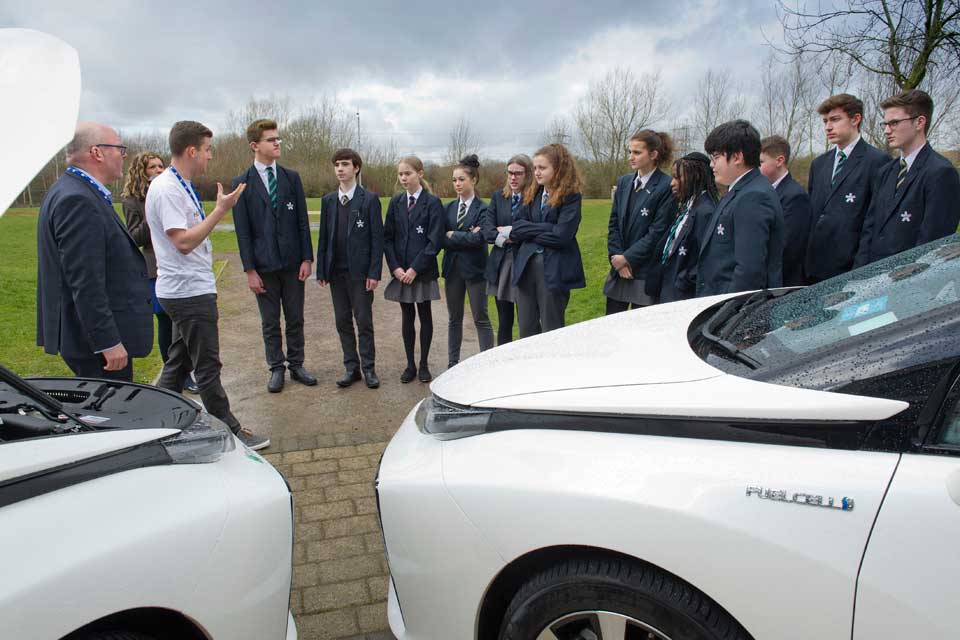eSUVs increasingly used by fleet managers as alternative to diesel vans
https://energymanagementsummit.co.uk/wp-content/uploads/2024/01/SUV-salim-7aWbpBx8a20-unsplash.jpg 960 640 Stuart O'Brien Stuart O'Brien https://secure.gravatar.com/avatar/81af0597d5c9bfe2231f1397b411745a?s=96&d=mm&r=gElectric SUVs (eSUVs) are being chosen by some fleets as an alternative to diesel and electric vans, according to new analysis.
Mobility specialist Arval says that as long as the space, payload and towing capacity offered by eSUVs is adequate, they can bring a wide range of advantages over their electric van (e-van) counterparts.
Ben Edwards, Consultant at Arval, said: “We’re at a moment in time when, having largely completed electrification of their car fleets, many businesses are looking to their light commercial vehicles (LCVs) and wanting to complete a similar transformation. However, for some, the current e-van choices available present some operational issues for their needs, especially around range and payload capabilities.
“We have been working with several of these fleets and have presented the concept of using eSUVs as an alternative. It’s quite a radical idea in itself – replacing vans with cars – but it does have many benefits as long as a model with sufficient carrying capacity can be identified.
“These eSUVs will tend to offer better range than vans, often up to 250-300 of real-range miles, solving the key problem that these fleets wanting to electrify their LCVs are facing. Also, the security and safety features offered by the car choices are frequently superior, offering better protection for whatever products and equipment are being carried, as well as more driver safety features such as parking and lane keep assistance technology.
“Additionally, chargepoint accessibility eases with an eSUV compared to an eLCV, although there is innovation and investment in this space, with initiatives such as charge hubs and electric freightways being launched to cater for larger vehicle and tow-charge requirements.
“Supply is another benefit. Generally speaking, new electric SUVs are more easily available than vans, certainly for some of the models that fleets are adopting. This is important because businesses will tend to want to adopt an identical, standard SUV across all of their activities in quantities of hundreds.”
“Of course, there is a human resources advantage to this, too. Generally,drivers would rather have an eSUV than a van and the current benefit-in-kind taxation situation makes this viable for almost all employees and comparable with van taxation.”
Edwards said that the whole life cost comparisons between SUVs and vans were often broadly similar but that this was not always the number one consideration for fleets making this decision.
“The businesses making this move have often made corporate environmental commitments with comparatively short timescales and this is a significant driver behind their current decision making. They want to electrify quickly and the eSUV route is allowing them to achieve this.”
He added that some LCV racking and conversion companies were already taking note of the trend towards eSUVs and producing products especially designed for this sector.
“We’ve been working with supply partners to increase the practicality of eSUV models for specific clients and been pleased to find that they have already been thinking about these vehicles and how they can be made more practical as a van replacement.
“There is also the option of liverying the eSUVs, which can be done in a manner that presents a strong corporate image but can easily be removed when the vehicles are eventually defleeted, ready for private buyers in the used market.”
Edwards added that it was unclear whether the move away from vans towards eSUVs was a long term trend or a solution that would just last one or two replacement cycles.
“As a strategy, this is very much a reaction to current conditions when it comes to electrification. Crucially, we expect to see the range and charging infrastructure to support e-vans improving over the next few years while other options such as hydrogen could start to make something of an impact. The pendulum could yet swing in the other direction and increases the opportunity to choose a zero-tailpipe emission vehicle over a petrol or diesel van.”



